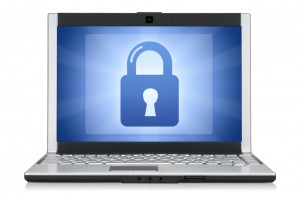 Price Waterhouse Coopers just released a report finding that cyber crime against businesses has soared in 2011. While Cyber Monday might be over, the online shopping discounts will continue to get better and better as Christmas approaches. In essence, the holiday ad bombardment won’t stop until the New Year bells have tolled.
Price Waterhouse Coopers just released a report finding that cyber crime against businesses has soared in 2011. While Cyber Monday might be over, the online shopping discounts will continue to get better and better as Christmas approaches. In essence, the holiday ad bombardment won’t stop until the New Year bells have tolled.
The press gives a great deal of attention to consumer protection over the holidays. I even wrote an article for ABC News on this just this week. And for good reason. This year 40% of consumers will have their information misused.
But given the just as staggering figures for online crimes against businesses, what are these companies supposed to do? Are there good practices that businesses should adhere to this holiday season? The short answer is yes.
For any business, consumers are your most important asset. If your customers don’t trust you, you won’t be in business long. Just as a manufacturers takes steps to ensure that the products they make are safe for consumers, businesses that engage in online sales must give cyber security the same level of importance. Hackers will check how easy it is to break into a site, so put up the online security locks and force them to go elsewhere. Note that the bigger you are, the more of a target you become. Hackers love to make headlines, so be on the ready if you are popular site.
And follow these security tips to get started on the right path to putting your consumer first:
Cyber security basics: Make sure your system is secure by encrypting usernames, passwords, and valuable personal information that belongs to your consumer. Also, break up personal information, for example, store username separate from full names and addresses.
“Red Team” your site – bring in a team of white hat hackers (a service SSP Blue provides, for example) to do a security assessment – they can find security holes and help you fix them before the bad guys exploit them.
“Red Team” your site again – anytime you change anything on the site – add a feature, for example – make sure it goes through the Red Team process again before going live. A new feature can sometimes break something else.
Teach secure coding – the best engineers still need training on how to write ‘secure code’. If you outsource your engineering, demand the outsourced company do the same.
Insert ‘Teachable Moments’ throughout your site – teach your users how to be cautious online and how to navigate safely – so they make it part of their daily routine and trust you more in the process.
Staying alert, engaged, and secure this holiday season isn’t just for consumers. Businesses need to be on guard as much as consumers do.
A few cyber security steps can make the difference between a prosperous holiday season and a lousy lonely one.



 “OH MY GOD! That is SO sad!”, you say as you watch the tragic news on TV or read through the articles you find on Google News or
“OH MY GOD! That is SO sad!”, you say as you watch the tragic news on TV or read through the articles you find on Google News or
Follow me